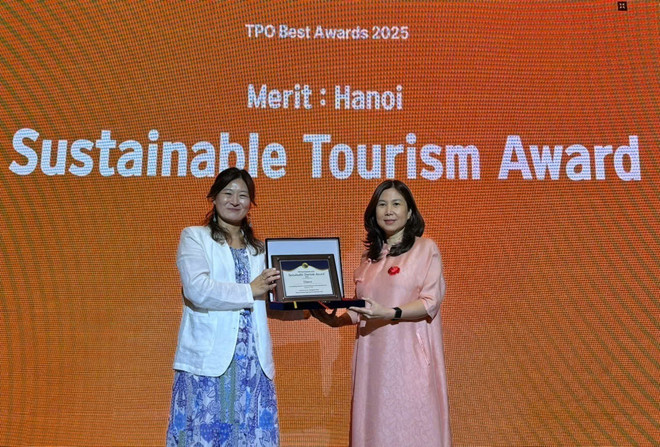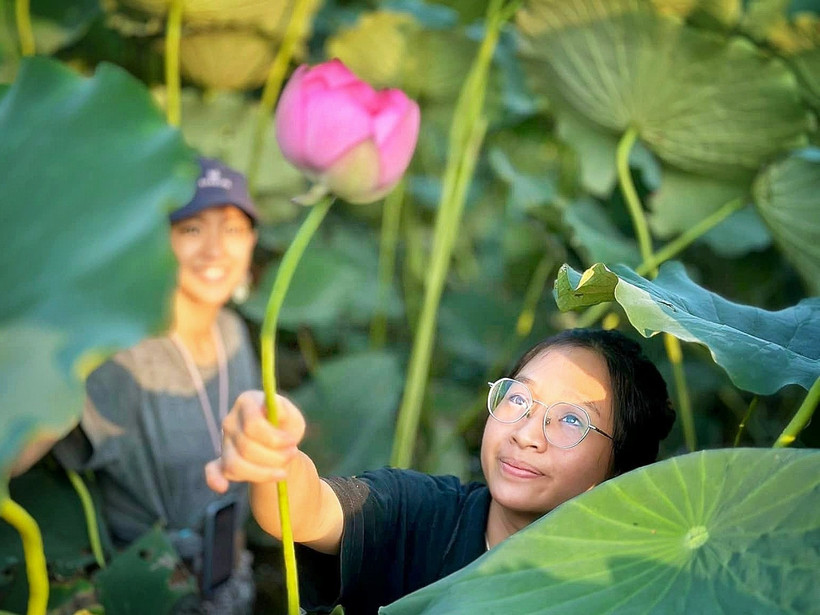Hanoi was recently honoured with the Sustainable Tourism Award at the Tourism Promotion Organisation for Global Cities (TPO) Best Awards 2025, which acknowledges the capital city’s enduring efforts in fostering a friendly travel environment and also highlights the urgent need for green transformation to assert its position on the international tourism map.
Assoc. Prof. Dr. Pham Trung Luong, Vice Chairman of the Vietnam Tourism Education Association, noted that green tourism is a method of environmentally friendly development based on the rational use of natural resources, minimised negative impacts on the environment, and priority given to responsible tourism types and products, a focus of which is ecotourism.
Over the years, Hanoi has pursued environmentally-friendly tourism development linked with cultural preservation. Such initiatives as reducing single-use plastics in accommodations and restaurants, the “Green Sunday” campaign, community-based and eco-tourism models, and waste sorting systems at relic sites have contributed to the capital’s image as a clean, safe, and green destination.
Last year, the capital welcomed nearly 28 million tourist arrivals, with more than 6.4 million foreigners, and earned 111 trillion VND (4.2 billion USD) in tourism revenue, nearly 8% of its GRDP.
Notably, the 80th National Day celebrations in September this year significantly boosted tourism in Hanoi, which attracted over 2 million visitors during the four-day holiday—three times more than the same period last year. International arrivals increased by 35%, and tourism revenue soared 80% to reach approximately 4.5 trillion VND. Meanwhile, hotel and condotel occupancy averaged 83%, with many 3- to 5-star establishments fully booked.
These impressive figures underscore Hanoi’s growing appeal, where cultural and historical values merge with the city’s commitment to green tourism.

However, Luong pointed out several limitations in the capital city’s sustainable tourism development efforts, elaborating that no Hanoi destination has been officially recognised as a green one under standardised criteria.
He blamed that fact on uneven levels of awareness of green tourism's role in urban development, a shortage of appropriate assessment criteria and recognition mechanisms, limited investment resources, and insufficient inter-sectoral coordination. As a result, potential destinations like Ba Vi, Huong Son, and West Lake have not fully realised their promise as iconic green hubs.
Director of the municipal Department of Tourism Dang Huong Giang said that the “Sustainable Tourism” Award will open up international cooperation opportunities, helping the city learn from others globally to improve its competitive edge and position on the world’s tourism map.
Experts believe that Hanoi should issue a set of criteria tailored to its urban conditions, enhance regional linkages, encourage community engagement, and prioritise investment in green infrastructure and clean energy. They also advocate the use of digital technology in tourism management and promotion.
Dr Vu Van Tuyen, Vice Chairman of the Vietnam Community-Based Tourism Association, perceived that non-environmentally friendly tourism models will be removed once sustainability becomes compulsory. At present, Hanoi University, in partnership with the International Organisation of La Francophonie (OIF), has launched a project on training and awareness improvement to build a workforce with a sustainability mindset, meeting the sector’s integration and innovation requirements in the new period./.



















